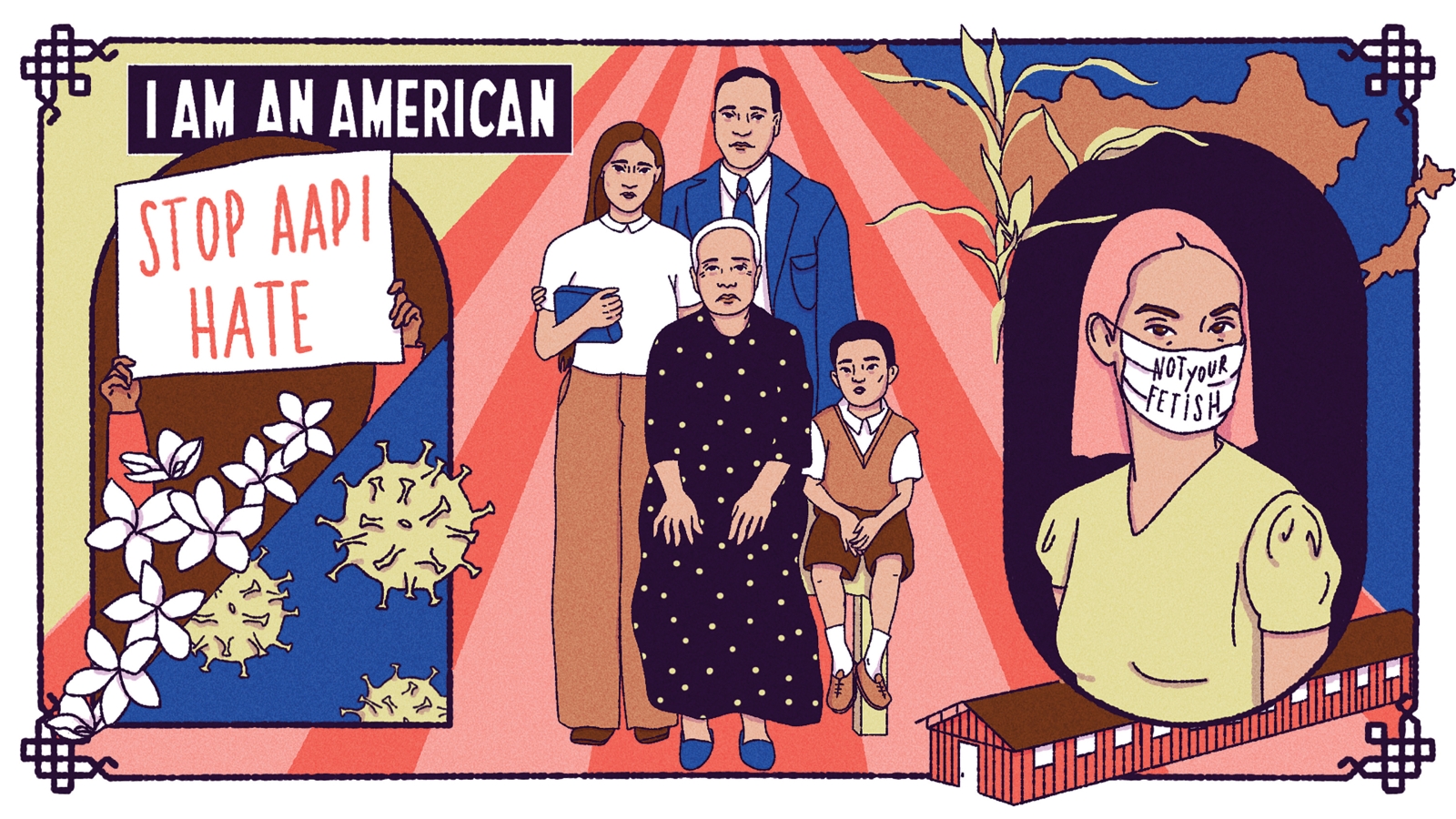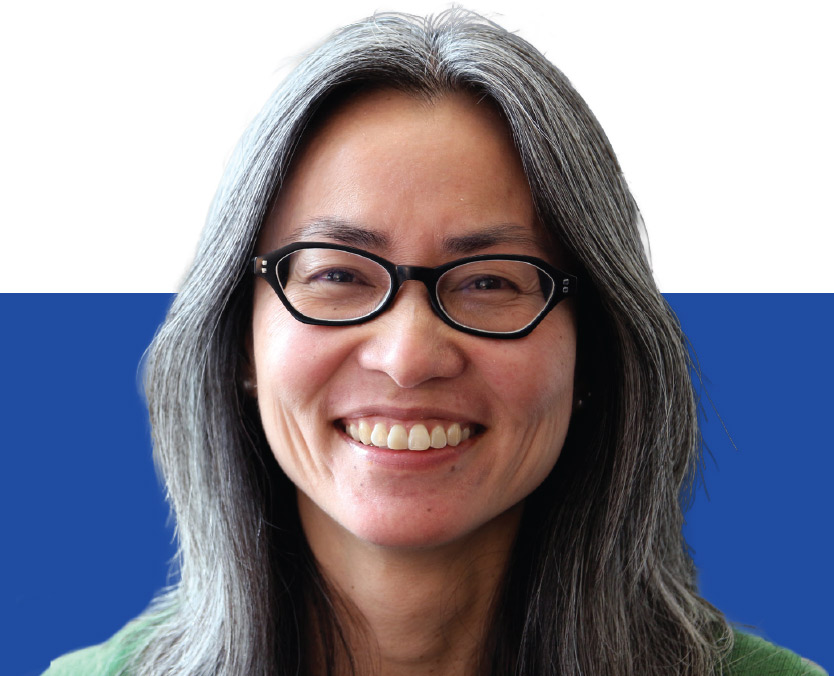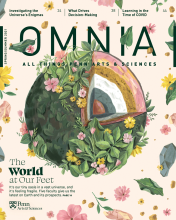Shifting the Conversation
Josephine Nock-Hee Park, Professor of English and Director of the Asian American Studies Program, on anti-Asian racism and community response.

On March 16, a mass shooting in the Atlanta area left eight people dead, including six women of Asian descent. The incident occurred after more than a year of increasing violence against members of Asian, Asian American, and Pacific Islander communities. Here, we talk to Josephine Nock-Hee Park, Professor of English and Director of the Asian American Studies Program, about anti-Asian racism in U.S. politics and culture, and the formation of the Asian American identity as an explicitly political act.

Josephine Nock-Hee Park, Professor of English and Director of the Asian American Studies Program
How did the Asian American identity develop?
I always tell my students that there is no core to the Asian American identity. There is not a shared linguistic, geographical, or even experiential identity. Asian Americans hailed from South Asia, the Pacific, and a vast geography. Asian America is created when people from all of these places get lumped together in America. The only common bond is racism.
The formation of Asian America was a product of the radical period of the late 1960s and ’70s. It drew in large part from African American political solidarity and cultural formation and was an explicitly racial, not ethnic, formation. The goal was for Asians of all different stripes to band together for common cause. To use the language of today, they wanted to be seen and to be heard and to have a political voice.
Why did Asian America want to have a cohesive political voice?
Foreign policy objectives have dictated the treatment of Asians in America, and as a result, there is little assumption that we are, in fact, American. The landmark Chinese Exclusion Act of 1882 meant that Asians were the first group to be excluded from entry to this country. It was intended to last for 10 years but was renewed until 1943, when the U.S. and China were allies in World War II. After the attack on Pearl Harbor, American-born Japanese people were stripped of their citizenship rights and incarcerated. Twentieth-century wars were fought in Asia. And more recently, the former president regularly presented the coronavirus as a foreign contagion.
Attacks on members of Asian, Asian American, and Pacific Islander communities have been rising in the past year. Is this related to rhetoric about COVID-19?
Yes. You see the repercussions of that rhetoric in the attacks on Asian people all over this country. At the highest level of government, we heard about “the China virus” and “kung flu.” What are the repercussions of that? Trump is no longer president, but this racist presentation remains.
What is the relationship between anti-Asian rhetoric and misogyny?
There is a longstanding kind of Western cultural practice of feminizing and eroticizing the East, dating back to the ancient Mediterranean. In the U.S. context, a byproduct of 20th-century warfare is an intimacy between American soldiers and local populations. During the Korean and Vietnam Wars, you saw the active deployment of local women to host American soldiers. And of course, there were also many genuine connections between soldiers and local populations.
After the shooting in Atlanta, many people have cited horrible clips from Full Metal Jacket and the film’s presentation of prostitution. That’s a very common, dominant caricature of Asian women.
How is anti-Asian racism understood in the U.S.?
Many of my Asian American students tell me that their friends, even some of their Asian American friends, don’t believe they experience racism. I think, “Really? They don’t believe it?” And then there is a general hesitation to call out anti-Asian racism, as in the resistance to labeling the Atlanta shooting a hate crime.
When racist attacks are not labeled as what they are, it can send you into a kind of turmoil.
This is gaslighting, and it’s unbelievable. It’s a personal burden that many Asian Americans share. I’ve talked to other faculty members and students who actually feel a sense of shame when they experience racism. In so many ways, I think it’s because anti-Asian racism has not been acknowledged more generally, so there’s often this sense of self-implication. You wonder, “Did I do something?” Am I misreading?” You end up trying to work it through yourself, when it wasn’t your fault. When racist attacks are not labeled as what they are, it can send you into a kind of turmoil.
How has the Asian American community reacted to the Atlanta shooting and the increased racism and violence of the past year?
It’s been very hard. It’s dredging up a lot of memories that I don’t often think about. It’s clearly dredging up memories for many members of the Asian American community. I heard Amara Walker, a CNN reporter, talking about the racism she and her family experienced as a child and I found myself going back to that, too. The name calling, tires slashed: All of that happened, and it was hard.
It’s so welcome to talk about that struggle. It’s been kind of amazing to see all these people come out and say, “Oh yeah, of course this happened to me.”
In this country, racism is commonly understood to be about Black people and white people. In the wake of the Atlanta shooting, I sense a shift in the national and cultural conversations. I talked about people not believing that Asian Americans experience racism. Now, I think more people believe it.
Hear more on a special episode of the In These Times podcast, “Atlanta and the History of Anti-Asian Violence.”




